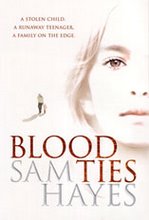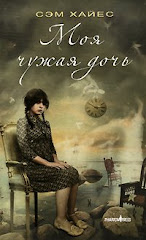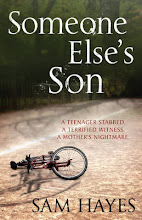I can only speak for myself when describing how to do it. Editing, like writing, is a personal business. Every writer has their own way, I guess. But ultimately the end result is the same. Or at least should be. Editing makes a book the very best it can be. It hones and polishes, cuts out the crap, does away with all those crazy notions that the writer once thought were clever. It loses all those wordy, overwrought sentences. It banishes whole scenes - even entire characters/sub-plots/threads - to the recycle bin. Editing is a breath of freh air after all those sweaty months of hammering out the first draft. And not editing your work is akin to buying a new gown and turning up at the ball without make-up or brushing your hair. Eeek!
I've very, very nearly finished the first draft of my new novel. When I write, the first thing I do each day is read what I wrote the day before. I spend some time making alterations, usually nothing major. I don't get too hung up on minute details. But anything glaring and I'll whip it into shape there and then. Then I get on with my day's writing, knowing that before long I'll be revisiting the text many times anyway. The thing is, as I approach the end, I'm desperate to go back to the beginning. Writing a novel (especially a 120k word novel) is a very fluid process. Of course I start out with strong ideas and a solid plot, but things have a habit of changing along the way. Therefore, earlier writing needs altering to fit in with new ideas/strands/characters so it all hangs together. Or I might feel that the overall balance of the novel is wrong - not enough action early on... Or perhaps the tone changes or a character has had to acquire a new trait to make some plot aspect convincing.
When I'm writing, I have several other files open for notes. I have timelines and character charts and a chapter by chapter summary that I fill in as I go along. But I also have a 'points to change' file, which is an enormous help when it comes to editing. My memory isn't so good and I'd find it impossible to recall everything that I've decided needs altering. When I turn back to the first page ready to edit, the first thing I do is go through these notes and make my suggested changes. By this time, I might not agree with some of the earlier ones, but they act as good memory-joggers to make sure an idea is watertight.
After I've worked through the list, which can take some time, I'll go back to the beginning once again and start reading through. This, for me, is quite a slow process. No dashing through the novel in eight hours. It could take as many weeks. I edit (I do all my work straight onto the computer. My handwriting is both slow and illegible) as I read, making tiny changes (spelling etc) to striking out whole pages or, sometimes, entire chapters. For me, the first draft is very much just 'getting it down'. I'd be pretty mortified if anyone read it at this stage. I also make notes to myself within the text as I go along, in another colour, if I get stuck on something. Coming back a few days later with a fresh eye is often the key to fixing a problem.
Editing isn't just making the words hang together right and sound pretty or slick or enticing when being read. Editing is about sticking to your guns, making certain that if a character is meant to be angry throughout, they don't suddenly go around hugging trees for no apparent reason. Editing tightens themes, carries sub-plots, and most importantly, makes the writing convincing. It does away with sloppy writing, wild thoughts and notions that have no place or add no value to the story. It makes the story true to itself.
When I get to the end of the book, with a bunch of fresh notes, I go right back to the beginning and do it all again. Then again. And again. And probably again and again.
At some point during the 'again and agains' above, my agent will get to see the typescript. I will hold my breath until she gets back to me and, guess what? She will have lots of good ideas for editing. We will discuss these, probably think of some new ideas together, and then I'll incorporate these too. As I'm writing in the new ideas, they are first draft writing and, in turn, will need to be edited. It is a never ending process, but a line does have to be drawn at some point. That's when we'll send the novel to my editor a Headline.
Every day I think of how fortunate I am to have such a brilliant agent and editor. And I'm not just saying that for the hell of it. New authors are hardly in a position to pick and choose these two key characters when starting their careers, so ending up working with people who are on the same level, who listen to my ideas, add their own thoughts in a way that's neither bombastic or flimsy, who have the very same intentions at heart as me - to put the very best books out there - is surely a good thing.
Anyway, this is when my editor gets her red pen out and adds her mark. It's physical. It's on paper. It's in her handwriting and sometimes entire pages get struck out. Sometimes I think: How can she not like that? Sometimes, to coin a phrase, she completely slaughters my darlings, even though I've already spent weeks trying to do the same myself. And sometimes she adds comments about the bits she loves, about how things hang together in the way we've discussed. Sometimes she adds just a word or two that is so insightful it makes me wonder what I've been doing these last few weeks - why didn't I see that myself? Having an editor is like seeing the novel with a new pair of eyes; a fresh brain. She edits from the eyes of the reader, the booksellers, the reviewers, the sales team, marketing and publicity, but most of all she edits for me. Because she understands totally what I'm trying to achieve and, if she doesn't think it's quite there, she'll show me how and why and where. Just how she does this is is a complete mystery to me. And also, how she does this so quickly, so accuarately and without getting in a muddle. It's easy to forget that I'm not her only author. She has lots of other books all at various stages of production. I've seen them, stacked up in her office and it's daunting to say the least. Let's all toast good editors.
I thought it might be interesting to show a page of UNSPOKEN after it's been beneath my editor's pen. I just randomly plucked out a page (making sure it didn't have any spoilers!)

When she sends the typescript back to me, she also sends a letter detailing all the ideas we've discussed. Then, with a big pot of tea, I sit down at my computer and I...edit. This will probably take me a couple of weeks. It's a very big pot of tea.
Then back it goes to my editor - of course keeping my agent up to speed and asking for her very valued advice. Sometimes I don't agree with suggested changes. Sometimes my editor agrees with my point of view and sometimes she doesn't. I've never 'argued' about changes - thankfully because we all seem to be on the same wavelength in our editorial triangle - but sometimes I've not been keen to budge. Somehow we all shift into each others' gears. Somehow my agent smooths the waters.
Once these changes are agreed, the edits get honed down to miniscule alterations. But sometimes these can be the most important. A single sentence added or removed could make or break a chapter, or indeed the whole novel if something is revealed too soon etc. Once all this is ironed out, the typescript goes off to the copy editor. To become a copy editor, you have to have been an eagle in a former life. They spot things normal mortals can't. Think typos, grammar, continuity, style - house and writing - and other bits and pieces that we have missed so far. It's like polishing the lipstick off your teeth before you step out in that new gown. It's one last OCD glance in the mirror.
Then the typescript comes back to me and...I sit down with a very big pot of tea... You get the picture. Once I've gone through stack of pages again, I send it back. My editor goes through everything again, raisies queries about my queries, perhaps adds a few more changes based on my changes as a result of the copy editor's changes...then, finally, the novel will go off to the typesetter.
Then I get it back. More tea...more mark-ups, more back and forth...etc etc... then, if we're lucky, silence. Just the clackety-clack of the printing press. Not the time to be thinking about edits.
So, as you can see, editing is a huge part of writing. I wouldn't say it's the most part, but very nearly. There has to be something there in the first place to edit, but once you have that first draft, once you've spent months and months writing, don't do yourself a disservice by not editing. Now go and listen to Regina Spektor's song and sharpen your pencil.
And let me know how YOU do it.
Sam xx






















.jpg)




7 comments:
I'm reluctant to tell you how I do it, because it doesn't involve endless rewriting of the first draft. It involves endless rewriting during the first draft.
I edit a lot as I write. A page an hour is pretty speedy for me. I'm constantly fiddling and scrolling up to check for rhythm and cadence and repeated words.
The next day, before I start, I print out the previous day's output (which amounts to perhaps three pages), and walk around reading it aloud and making changes with a pen. Then I make those changes and start writing new stuff.
Then I aks a few friends for comments.
My second drafts are always about cutting and expanding--lopping out scenes that don't belong, adding in new scenes that are needed. But round two is largely structural. The prose is pretty solid by this point.
The novelist and teacher Stephen Koch says that fast first draft writers should be slow in their rewrites, and slow first drafters should be fast rewriters. If he's right, I'm in the second class.
PS. The A-Z sequence is looking to be a lot of fun!
Hi David,
I think I'm in the first camp then. I'm pretty fast at first drafts. However, with a deadline looming, it's always a bit nail-biting with editing. I do NOT like to rush this. So much changes at this stage for me. Maybe for the next book I should try your method. I'm quite envious of your daily discipline.
Thanks for stopping by. Glad you like the A-Z. Beats me blogging about what I ate for dinner :-)
Sam
Sam, I don't know which I like more - your post or the song!
I admit to hating editing. I know I need to do it, but...once I've got to the end of the first draft, I've worked out what the story's about. From that point on, it's drudge.
Although the first draft of my current WIP is so ratty that I can see it might just be fun to fix it, like restoring an old car...
Hey Tim, thanks for stopping by. Regina Spektor rocks, doesn't she? I think editing is a mood thing. You have to be in the right one. Some days it's easier than writing, but others it can be a drudge as you say. Yes, like restoring a car...or a house in my case. We have builders in and I know it's going to be worth all the mess and dust - but cleaning it all up every night is such a drag.
S xx
That was an opportunely timed reply, Sam, because this morning I was finishing - that's FINISHING - the first draft of my current WiP. And serendipitously with Regina Spektor on the stereo...
FINISHED! FINISHED!
And now I have to start the bloody editing...
Well congratulations are due, Tim. Fine choice of music for your finale. Do let me know how the editing goes. I am doing the same myself. More Regina and lots of coffee.
Hi niice reading your post
Post a Comment